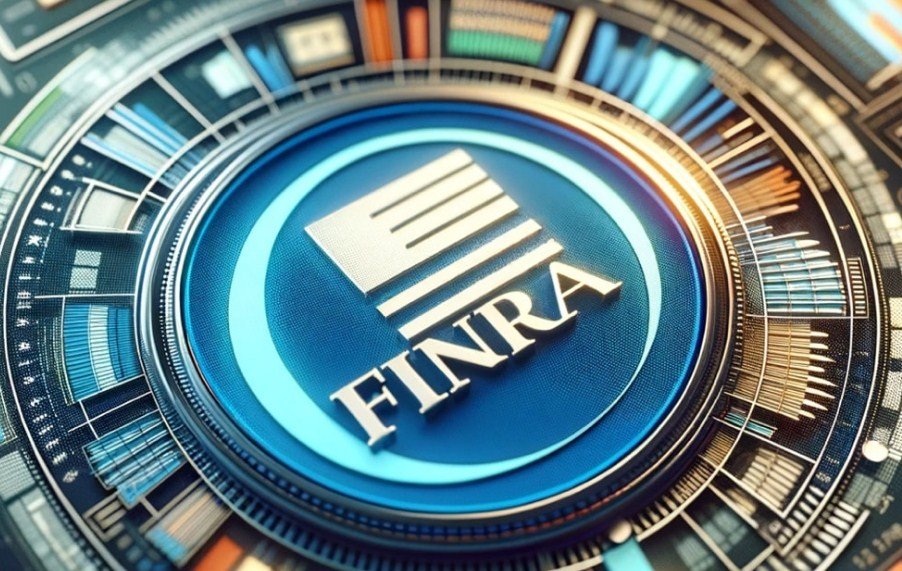The U.S. Financial Industry Regulatory Authority (FINRA) has published a report on the results of a targeted exam of crypto asset-related communications by its member firms. The report revealed that 70 percent of the communications violated FINRA rules on providing fair and balanced information to the public.
What is FINRA and why does it matter?
FINRA is a self-regulatory organization that oversees the activities of more than 3,600 broker-dealers and 630,000 registered representatives in the U.S. FINRA sets and enforces rules and standards to protect investors and promote market integrity. FINRA also reviews the communications of its member firms with the public, such as advertisements, websites, social media posts, podcasts, and brochures.
FINRA’s rules require that broker-dealer communications with the public be truthful, accurate, and not misleading. They also prohibit exaggerated, unwarranted, or promissory claims, and require that communications provide a sound basis for evaluating the facts regarding any product or service discussed. FINRA’s rules apply to all communications concerning crypto assets and crypto asset-related services, whether they are offered by the member firm itself or by a third-party affiliate or partner.
What did FINRA find in its targeted exam?
In November 2022, FINRA launched a targeted exam to review the practices of certain member firms that actively communicate with retail customers concerning crypto assets and crypto asset-related services. FINRA reviewed more than 500 retail communications received from these firms for compliance with FINRA Rule 2210 (Communications with the Public).
The exam found that approximately 70 percent of the communications contained potential violations of FINRA Rule 2210. Some of the common issues identified were:
- Failure to clearly differentiate between crypto assets offered through third-party affiliates and those directly offered by the member firms, leading to confusion among investors about the nature and risks of the products and services.
- Inaccurate portrayal of crypto assets, such as comparing them to cash or cash-equivalent instruments, without a sound basis for such comparisons.
- Unclear or misleading explanations of how crypto assets function, including their core features and risks.
- False suggestion that certain crypto assets were protected by the Securities Investor Protection Corporation (SIPC) under the Securities Investor Protection Act (SIPA), potentially giving investors a false sense of security.
FINRA noted that a handful of firms included in the exam distributed most of the potentially violative communications, and that some firms had taken corrective actions after being notified of the issues.
What are the implications and recommendations for crypto firms?
FINRA’s report highlights the need for crypto firms to review and supervise their retail communications concerning crypto assets and ensure that they comply with FINRA’s rules and standards. FINRA also provided a set of questions and guidelines for firms to consider as they evaluate their crypto communications, such as:
- Do your firm’s crypto asset retail communications contain unwarranted or misleading content, such as descriptions of crypto assets as liquid assets that are easily tradable, or language that overstates the safety of trading in crypto assets?
- Do your firm’s retail communications concerning a crypto asset provide a fair and balanced presentation of its risks, such as volatility, security, regulatory, and operational risks?
- Do your firm’s retail communications concerning a crypto asset clearly disclose the source and nature of any compensation or other benefits received by the firm or its affiliates in connection with the crypto asset or service?
- Do your firm’s retail communications concerning a crypto asset clearly identify the entity that is offering or providing the crypto asset or service, and whether it is a FINRA member firm or a third-party affiliate or partner?
FINRA stated that any findings of substantive potential violations are evaluated for further review and follow-up, including considering whether to refer to FINRA’s Enforcement Department, as appropriate. FINRA also encouraged firms to contact its Advertising Regulation Department for guidance on specific communications or questions.
FINRA’s report is a reminder that crypto firms are subject to the same rules and regulations as traditional financial firms, and that they need to be vigilant and responsible in their communications with the public. Crypto firms that fail to comply with FINRA’s rules may face disciplinary actions, fines, or sanctions, as well as reputational damage and loss of trust from investors.


 Bitcoin
Bitcoin  Ethereum
Ethereum  Solana
Solana  Cardano
Cardano  Chainlink
Chainlink  Avalanche
Avalanche  Sui
Sui  Polkadot
Polkadot  Mantle
Mantle  Bittensor
Bittensor  NEAR Protocol
NEAR Protocol  Internet Computer
Internet Computer  Cosmos Hub
Cosmos Hub  Quant
Quant  Algorand
Algorand  Aptos
Aptos  Render
Render  Filecoin
Filecoin  Arbitrum
Arbitrum  Jupiter
Jupiter  Sei
Sei  Stacks
Stacks  Optimism
Optimism  Injective
Injective  The Graph
The Graph  Celestia
Celestia  Pyth Network
Pyth Network  THORChain
THORChain  Immutable
Immutable  MultiversX
MultiversX  Akash Network
Akash Network  dYdX
dYdX  Flow
Flow  Illuvium
Illuvium  Manta Network
Manta Network  Kujira
Kujira  Metis
Metis  Dymension
Dymension